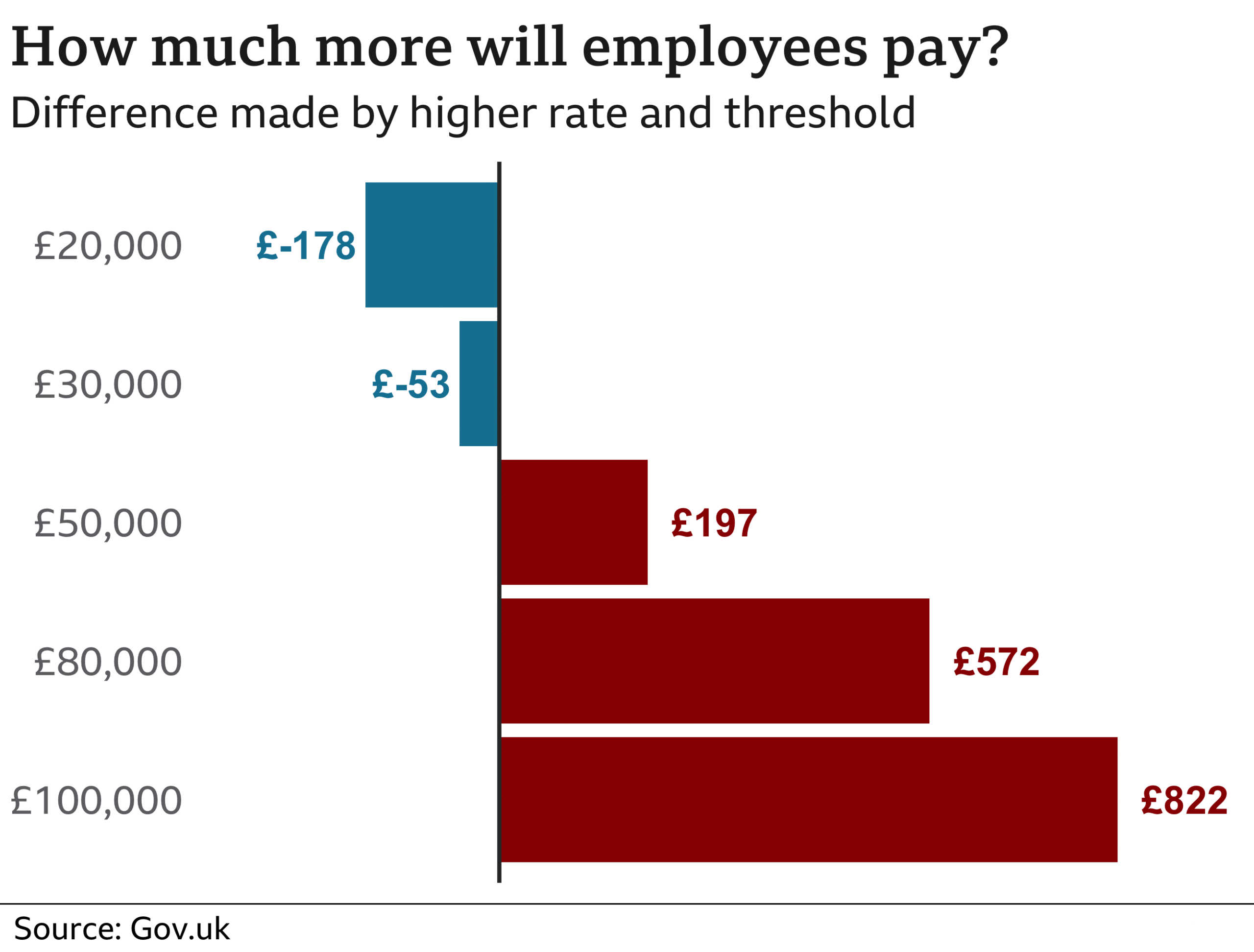The burden of tax falling on workers and employers has increased as a hotly-debated rise in National Insurance payments takes effect. Employees, businesses and the self-employed will pay an extra 1.25p in the pound. The government says it will spend it on health and social care.
Opposition MPs said it exacerbated cost of living pressures, but mitigation will be introduced in July.
Experts are urging people to check their status as a new tax year starts.
Earnings levels at which people start to pay income tax have been frozen, increasing the chances of employees being dragged into a new band – with a higher rate of tax – if they receive a pay rise. Employees pay National Insurance on their wages, employers pay extra contributions for staff, and the self-employed pay it on their profits.

In September, the government announced the rise in contributions from 6 April, in part to help ease the burden on the NHS. It means that, instead of paying National Insurance contributions of 12% on earnings up to £50,270 and 2% on anything above that, employees will now pay 13.25% and 3.25% respectively. The self-employed will see equivalent rates go up from 9% and 2% to 10.25% and 3.25%.
Those of state pension age do not pay the tax at present, and nor do those on very low incomes.
After the announcement last year, the plans were met with disapproval from opposition parties and some backbench Conservative MPs who criticised the timing, as many people face sharp rises in energy bills and prices in general.
Chancellor Rishi Sunak responded in his Spring Statement with plans to allow workers and the self-employed to earn more before they start making National Insurance payments. This will take effect in July.
From now, employees will pay National Insurance contributions on earnings above £9,880 a year. From July, it will be paid on earnings above £12,570 a year. Taken together, the measures mean that, over the next 12 months, anyone earning less than about £34,000 a year will pay less in National Insurance than they did the previous year, while those earning more will see their payments rise.
Had the chancellor stuck with his original plan, then all but the very lowest income workers would have paid more in National Insurance.
Many employers will still pay more, and business groups have warned that this may be passed on in higher prices. They also said it would add to the pressures already faced by firms following the withdrawal of Covid support measures.
The government said it had raised Employment Allowance from £4,000 to £5,000, so smaller firms could claim up to £5,000 off their National Insurance bills. Ministers said it meant 670,000 firms would not pay the tax at all.
Overall, the increases in National Insurance for employers and higher-income workers will raise an extra £10.9bn in a year for the government, according to the Institute for Fiscal Studies.
Prime Minister Boris Johnson described it as “necessary, fair and responsible”, adding that it would “provide the health and care system with the long term funding it needs as we recover from the pandemic”.
Next year, the extra tax will be rebranded as the Health and Social Care Levy.
Health Minister Sajid Javid said the levy was necessary because it would be “morally wrong” to let “our children pay for our healthcare and our adult social care”.